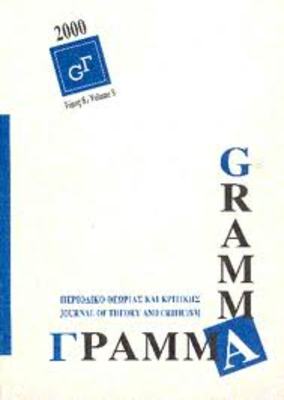What is called ecoterrorism
Part of : Γράμμα : περιοδικό θεωρίας και κριτικής ; Vol.16, No.1, 2008, pages 153-166
Issue:
Pages:
153-166
Section Title:
From eco-criticism to eco-terrorism
Author:
Abstract:
The perceived threat of ecological terrorism has become a major concern of environmental discourse during the past two decades and ominously shifted focus in the process. This neologism has been brandished as an epithet both from the "right," in the first instance to stigmatize eco- and animal rights activism, and from the "left," to stigmatize state and corporatesponsored violence. The activists quickly lost this war of words, however, so that "ecoterrorism" discourse has become predominantly a rhetorical weapon not only against radicals but sometimes even mainstream reformist initiatives. Through the lens of literary history, the shift is encapsulated by the genesis and reception of two novels: Edward Abbey's cult classic The Monkey-Wrench Gang (1975), a catalytic inspiration for the Earth First!Movement but later a posterchild for right-wing critics of "ecoterrorism"; and Michael Crichton's eco-thriller State of Fear (2004), in which an eco-radical organization figures as a Satanic adversary secretly deployed by a supposedly respectable mainstream environmental group. It might seem that 9/11 would have played a crucial role in putting what one political theorist has called "resistance citizenship" on the defensive. But that is less true than one might suppose from the claims usually made for 9/11's world-his torical import. In this case, the "zero hypothesis" rejected by Jean Baudrillard (9/11 made no appreciable difference in the world power structure) seems broadly true. The deeper cultural logic of this irony is then explored, with reference to the long tradition of conspiracy phobia in U.S. history, as well as the political thought of Hannah Arendt, Jacques Derrida, and others. I then return to the question of how radical ecotheory's ethical paradigms might abet overreaction rejected by Baudrillard and conclude with some reflections on the possible future(s) of eco-resistance citizenship.
Subject (LC):
Notes:
Revisiting crisis / reflecting on conflict: American literary interpretations from World War II to Ground Zero.Περιέχει σημειώσεις και βιβλιογραφία




